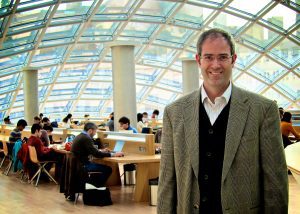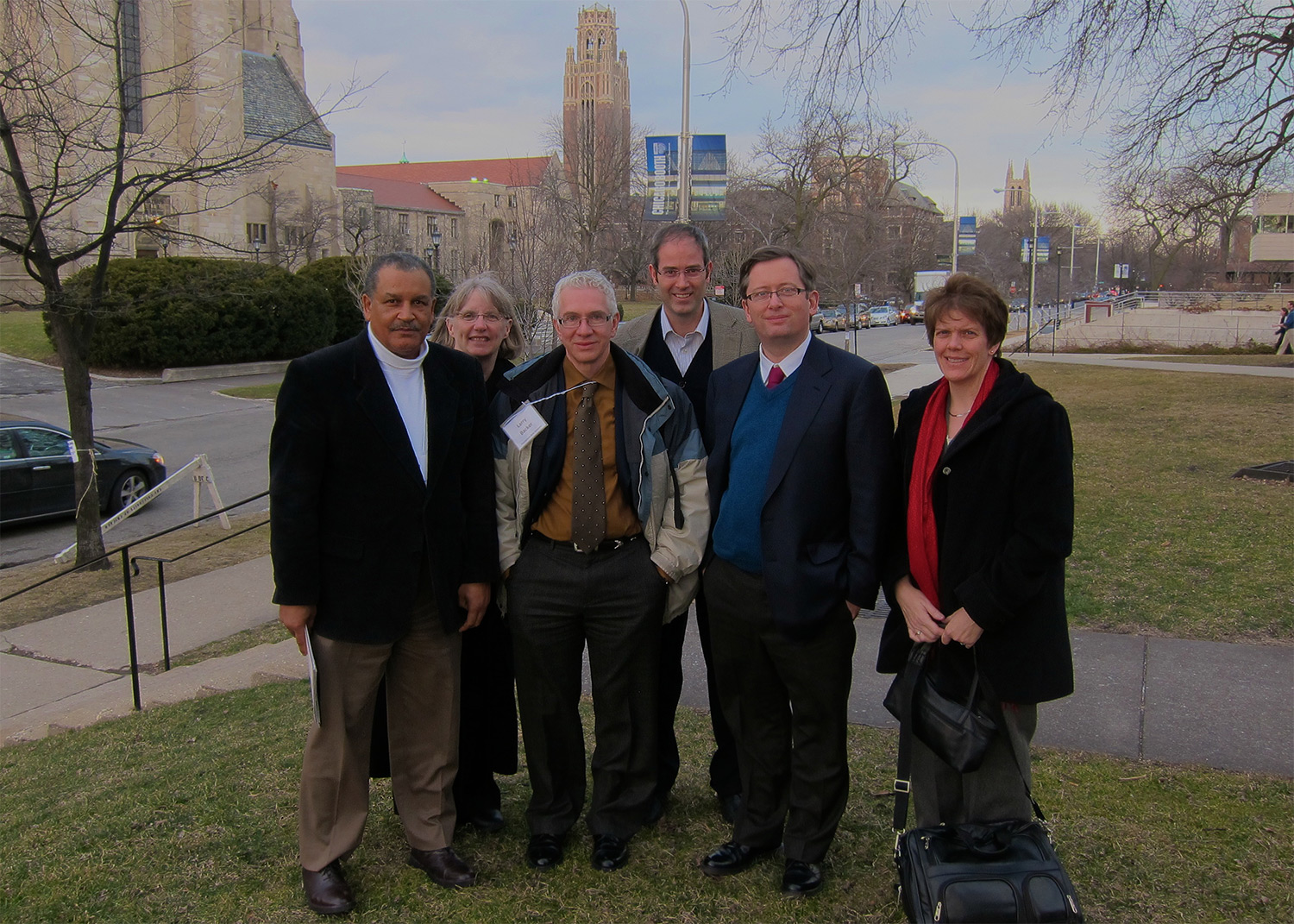 In her address to the Committee on Institutional Cooperation‘s Academic Leadership Program at the University of Chicago last Thursday, Martha Nussbaum offered a compelling defense of a liberal arts education. She advocated for an education for democracy in the face of increased global emphasis on education for economic growth.
In her address to the Committee on Institutional Cooperation‘s Academic Leadership Program at the University of Chicago last Thursday, Martha Nussbaum offered a compelling defense of a liberal arts education. She advocated for an education for democracy in the face of increased global emphasis on education for economic growth.
In the United States and around the world education policy has come to be driven by a concern more for economic growth than for a flourishing democracy. One need only look as far as the 2006 Spellings Report (pdf) to see this trend at work:
“America’s national capacity of excellence, innovation and leadership in higher education will be central to our ability to sustain economic growth and social cohesiveness. Our colleges and universities will be a key source of the human and intellectual capital needed to increase workforce productivity and growth.” (Spellings, 7)
Nussbaum sought instead to articulate a set of educational virtues for democracy around which our institutions of higher education should mobilize. The three on which she focused were:
- Socratic self-criticism: the ability to argue coherently, to criticize thoughtfully and to hold one another accountable for the implications of our political policies and beliefs;
- Becoming a citizen of the world: the ability to understand and converse about global problems, the recognition that we are part of a global community;
- Narrative imagination: the ability to “read” the stories of others, to recognize that everyone has a internal life and a set of motivations that determines the way they relate to others.
These three virtues, decisive for the long term well-being of democracy, are cultivated largely through the traditional liberal arts curriculum which is increasingly under attack by those pressing for a more focused, narrower, professional education oriented toward economic growth.
As the Academic Leadership program at the University of Chicago unfolded, the tension between an education for democracy and an education for economic growth came more fully into focus. When we turned our attention to the research mission of the University, it seemed that the economic argument for research came to eclipse the concern for the virtues of democracy for which Nussbaum advocated.
Joseph Walsh, Vice President for Research at Northwestern University, began his presentation by emphasizing the educational mission of research, suggesting that in the classroom, we teach our students, but with research, we teach the wider world. However, he focused most of his comments on those research discoveries at Northwestern that had the most palpable impact on the economy, reminding us that four-fifths of all economic growth comes from technological development, and that much of that development happens at research universities. In this context, he outlined the argument he offers to the politicians in Washington whose funding support research universities seek: economic growth is driven by the research done at our best research universities; funding research increases employment opportunities. It is all about “jobs, jobs, jobs.”
As we returned from Chicago, I found myself reflecting on this tension between education for democracy and education for economic growth. Then, we were lucky enough to miss our connection from Dulles to State College. I say ‘lucky’ here, because the long drive from Dulles offered a number of us the opportunity to talk further about our experience at the University of Chicago. Driving through rural Virginia, Maryland and Pennsylvania, we began to focus our attention on what a major land-grant research university has to offer students educationally that they can’t get from smaller, private liberal arts colleges. We kept coming back to the research mission of the university.We began to consider ways to integrate the research enterprise more tightly into the undergraduate experience at Penn State. Students need to be exposed to the passion for discovery that animates all great research endeavors. They need more opportunities to work closely with our research professors so that they might feel the power and excitement of research as an educational endeavor. To accomplish this on a grand scale at Penn State would likely require substantive changes to the general education curriculum and other significant financial resources, but I am convinced that if we are able to integrate the research enterprise more deeply into the undergraduate experience, we will have begun to cultivate in our students the very virtues Nussbaum suggests are critical for a flourishing democracy. Students engaged with research will learn self-criticism, the concerns of a global community and narrative imagination as they come to experience precisely these abilities at work in our most excellent academic researchers.
Following such a path at Penn State would, I imagine, illustrate the extent to which economic growth is not so much a goal of research, but an important, albeit secondary, outgrowth of an education rooted in traditional liberal arts virtues infused with a deep engagement with the research enterprise. Perhaps an education for democracy can also be an education for economic growth–the history of the American land-grant system of higher education seems to suggest that this is precisely the case. Perhaps the best way to celebrate the 150th anniversary of the Morrill Act is to redouble our efforts to combine rigorous research with the long standing virtues of an education in the liberal arts.



I too was “lucky” enough to drive with the group from DC back to State College and I agree strongly with Chris’ summary and recommendations. The question that struck me was how do we make the case that students should pay a premium to attend a research university? Surely the answer must be found in exposing students to the process of research. We do this well for some students (e.g., honors students, independent study) but these approaches aren’t scalable to the rest of the population.
General education is where an institution makes its values evident. Penn State values (and invests hugely in) research, so how can we build a research-centered Gen Ed curriculum? One approach would be for faculty members to teach classes in their current research area ,explaining how and why they discover and evaluate information. These might be a series of 4-5 lectures that contribute to a wider theme. The theme could cross various approaches to scholarship (e.g., arts,, humanities, physical sciences) and could focus on a theme (e.g., “Hunger”, “The Marcellus Shale”). It might also be helpful to have a coordinator who could provide some sort of meta-analysis and draw students’ attention to the different ways different scholars think about their problem. Evaluation of learning should focus on the processes of discovery and evaluation more than the memorization of facts.
I don’t think this approach would necessarily be more expensive than the way we are doing Gen Ed now but would shift the responsibility clearly to tenure line faculty and focus all our students on the process of discovery and evaluation rather than memorization. Penn State can teach these essential life skills in ways non-research institutions cannot.
was watching the CSPAN coverage of the national meeting of governors and the message over and over was that state funded research at universities should be directly tied into local entrepreneurial efforts, this would certainly teach undergrads something about how democracy is shaped in our country but I doubt if it would be the kind of reflexive participatory process that you would like it to be.
If faculties don't start to get better organized around these issues than they will be decided in statehouses.